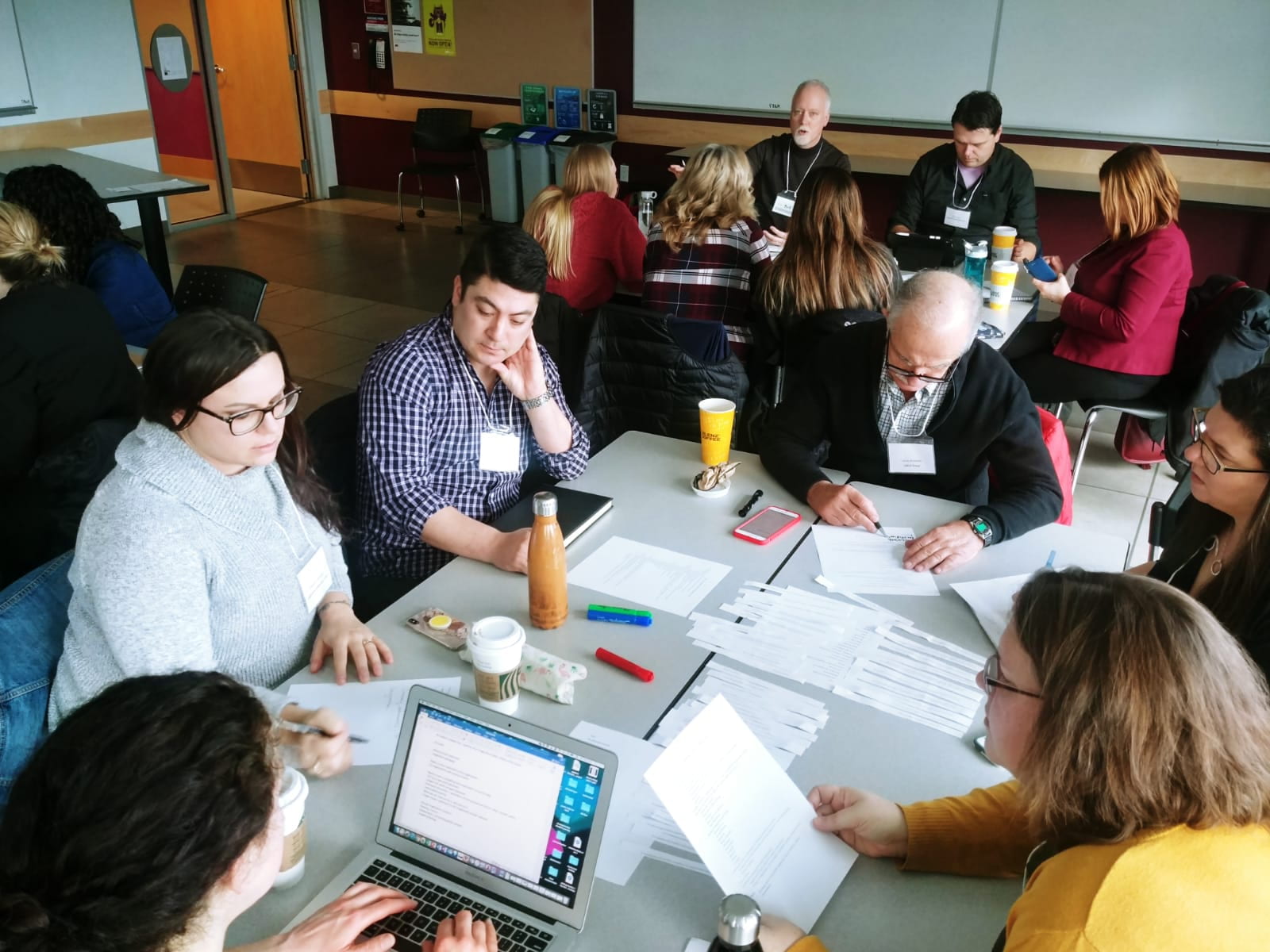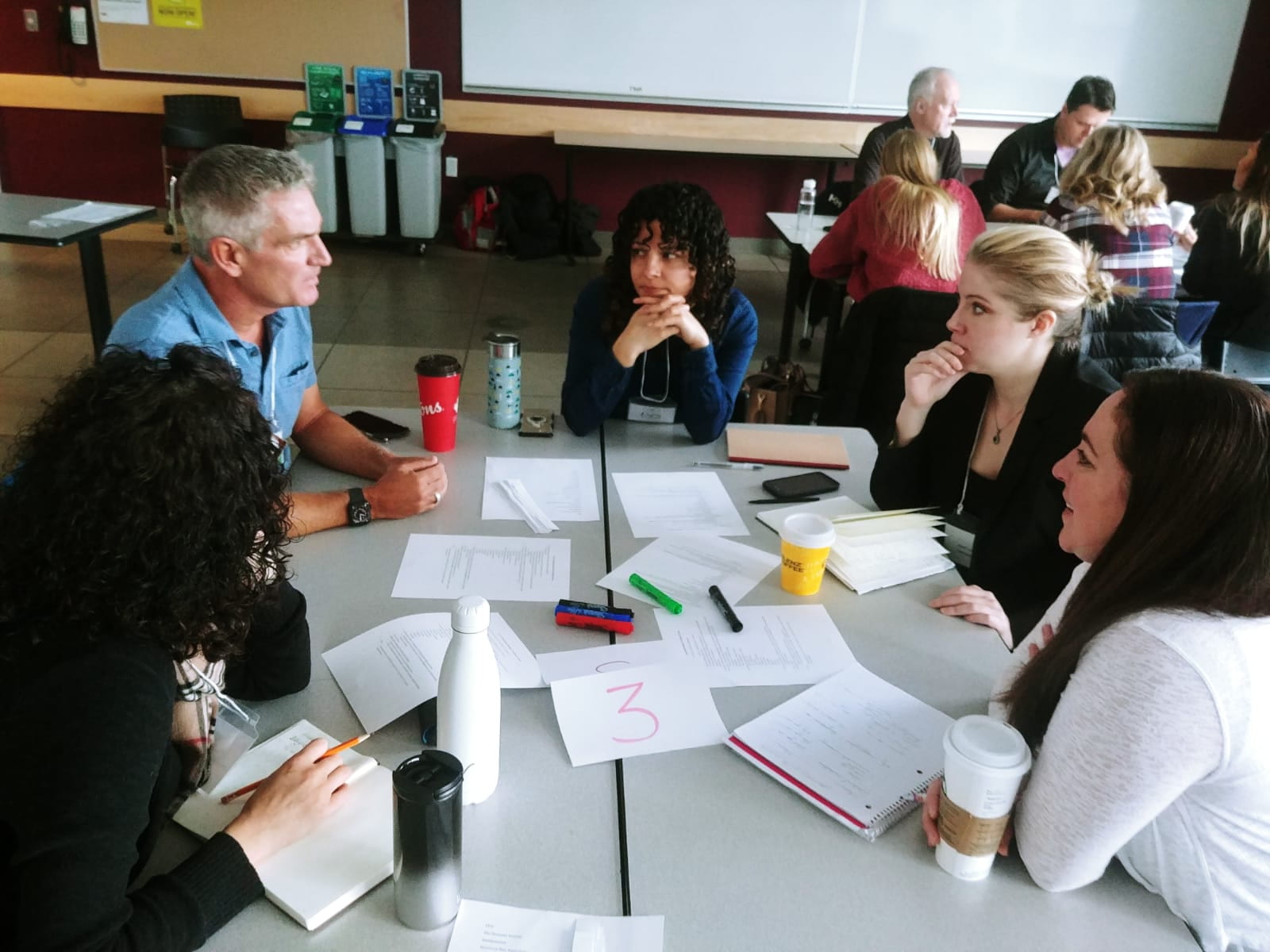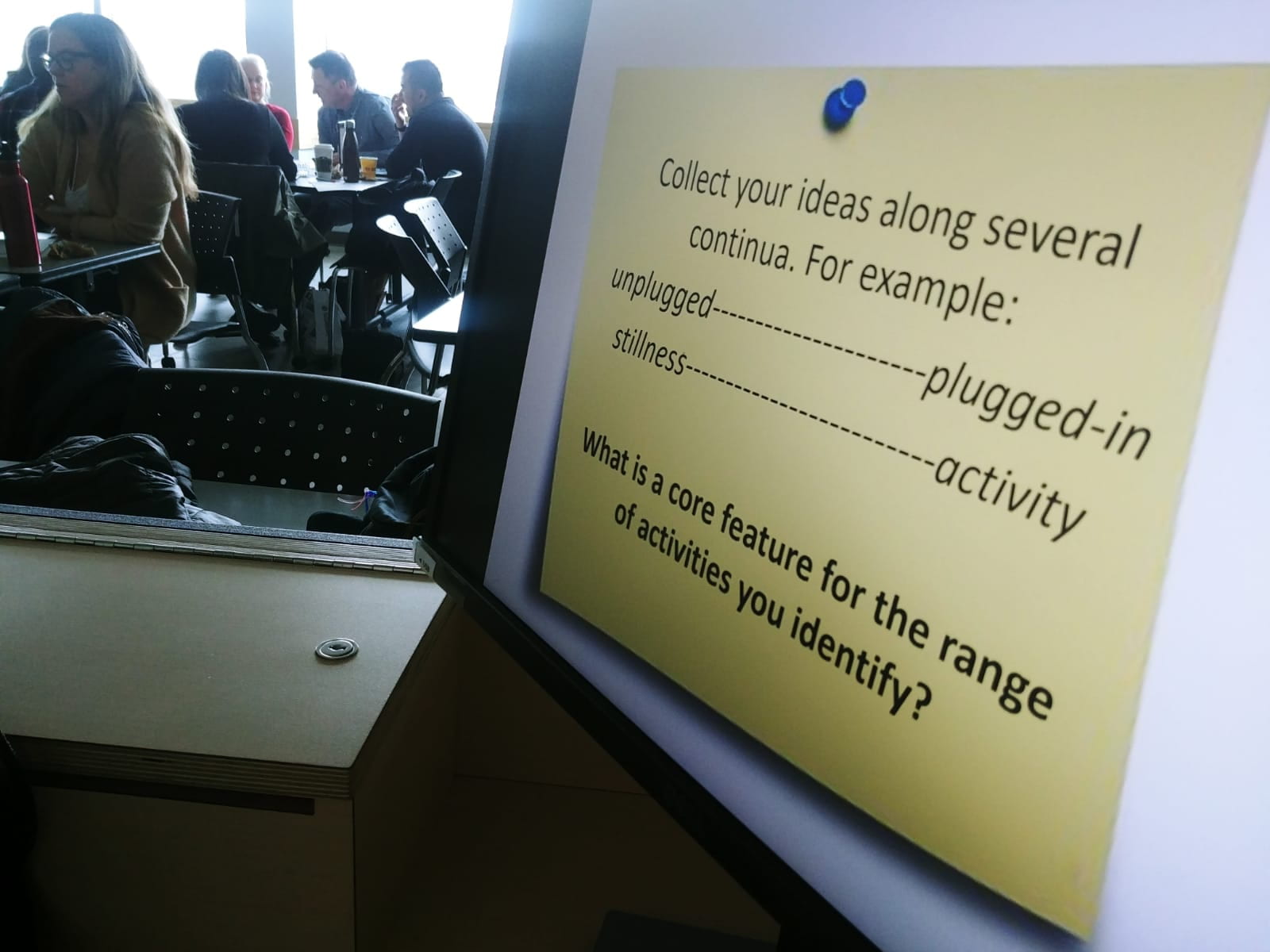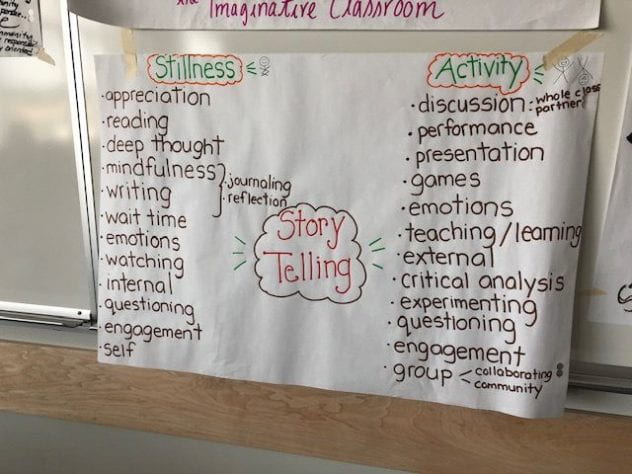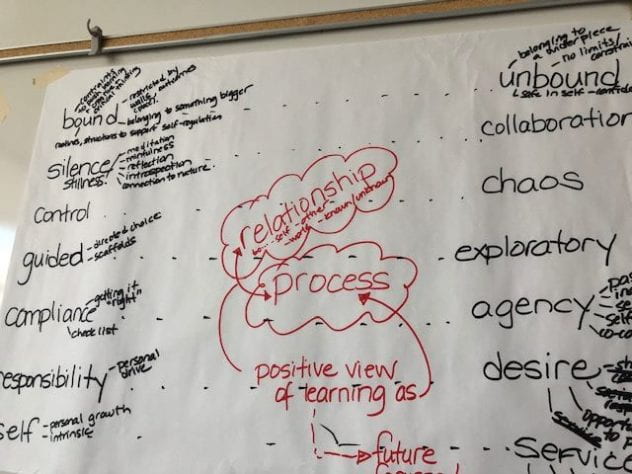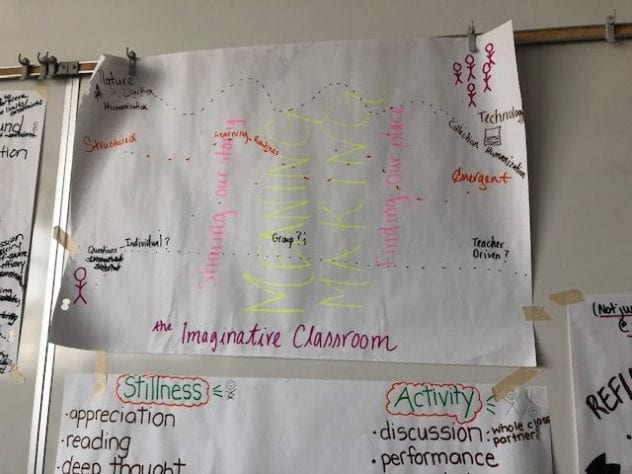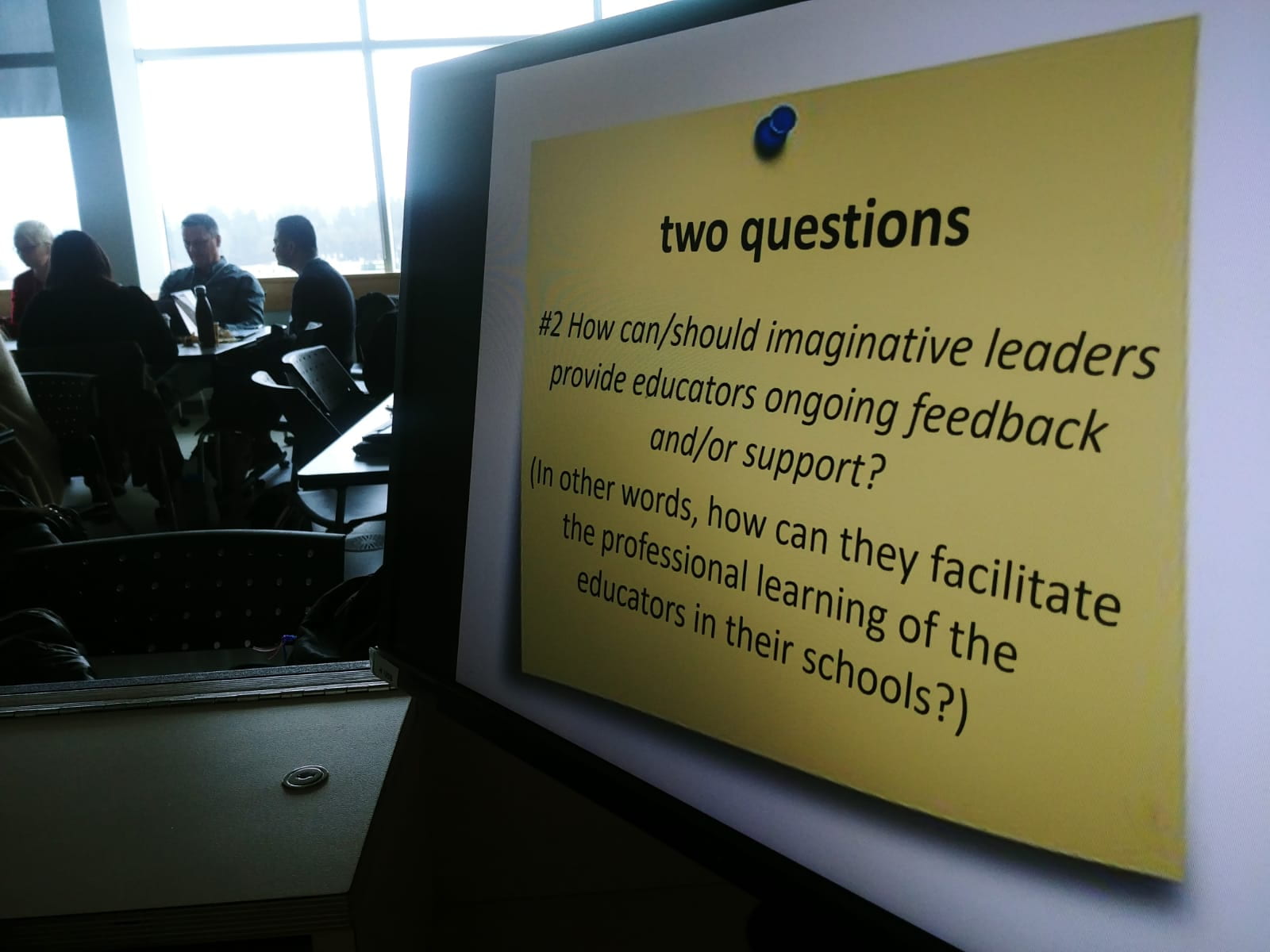By Amanda Van Garderen and Courtney Robertson (Educators, Leaders, MEd alumni in Imaginative Education)
The word “imagination” has long been known as a word to describe the Friday afternoon lesson… when the real work of learning is done and educators are looking to fill their quota of “arts and crafts.” As one member of our Imaginative Schools Symposium Series (ISSS), Secondary Principal John Pusic said, the word “imagination” unfortunately tends to be understood as something akin to frivolous dreaming, extraneous to “real” learning:
How on earth did dreaming of the possible become a taboo word? How did encouraging students to “think outside the box,” “challenge the status quo,” and “imagine” what has not yet been conceived become something that doesn’t have the same value as learning about the periodic table or algebraic computations?
History has taught us that the thinkers, the dreamers, and the “head in the cloud” kids become the individuals who change our world for the better. From Einstein to Tesla, Graham Bell to the Wright Brothers, and Currie to Banting… these dreamers all created things that had not yet been imagined yet. How can we say that imagination is not equally important to other learning, when in fact our world is better because of a dreamer imagining something not yet “possible”!
These thoughts bring us to a cold, foggy February morning. What’s more invigorating than the opportunity to gather with Imaginative Leaders and thinkers to engage in delicious and nourishing dialogue? A beautiful morning to wake up the senses in the splendour of SFU Surrey with a multitude of minds ready to nurture an Imaginative Schools Network. We come from a myriad of spaces and places. Educators, administrators, graduate students, business people, etc. that have come together to dream up something yet unimagined. Important… yet complex work.
We at the ISN have come to understand that we need to do more than talk about imagination.
We need to share it. We need to breathe it. And we need to name it… out loud.
By naming imaginative practice we allow pedagogy to flourish and grow. Through the naming we acknowledge it. We may have been using imaginative practices, but were we in fact continuing the belief that imagination is a flippant and mindless tool, afraid to vocalize our belief that imagination should always take centre stage?
We began the morning with an invitation to our teams to contemplate a vision/mission statement for an Imaginative Schools Network. What do we do? And how and why do we do it? It was a much more challenging task than it would seem. After a great deal of brainstorming, conversation and interthinking, each team developed a draft mission statement. Language revolved around the emotional connection students need to make learning meaningful, the power of story, the importance of reflection, meaning making through imagination, flexibility and reflexiveness, and relationship and collaboration. We as a group of imaginative educators believe these things to be paramount in our work, and, as such, took important space in our discussions around a mission statement. The work will continue into the Spring, as we finalize our collective “we” and “why”.
We also puzzled around the needs that would be demanded from an ISN, and how we would provide for these demands. Conversations abounded around professional development, teacher education, and the importance of a strong and diverse network. Providing these opportunities and careful planning will better serve the building of our ISN, and as such, the conversation was rich and important.
We wrestled with the most effective ways Imaginative Leaders can facilitate the professional learning of the educators in their schools and how to nourish teacher engagement. The teams highlighted the need for leaders to cultivate a culture of trust and safety, encourage collaborative relationships, model professional vulnerability, provide time and space for educators to cultivate relationships and develop plans, team teach, and honour and celebrate the journey and contribution of each member of the school team in order to build a common narrative.
We know as imaginative leaders that emotional engagement is the key to long lasting learning. We wrapped up the morning of imagining possibilities feeling excited, hopeful, inspired, engaged, motivated, energized, optimistic, puzzled, appreciative, connected, involved, positive, happy, and passionate. This important work is nothing short of emotionally engaging!

Interested in Learning More?
You can read Dr. Gillian Judson’s post on the Session #1 of the Imaginative Schools Symposium Series here.
About the Authors
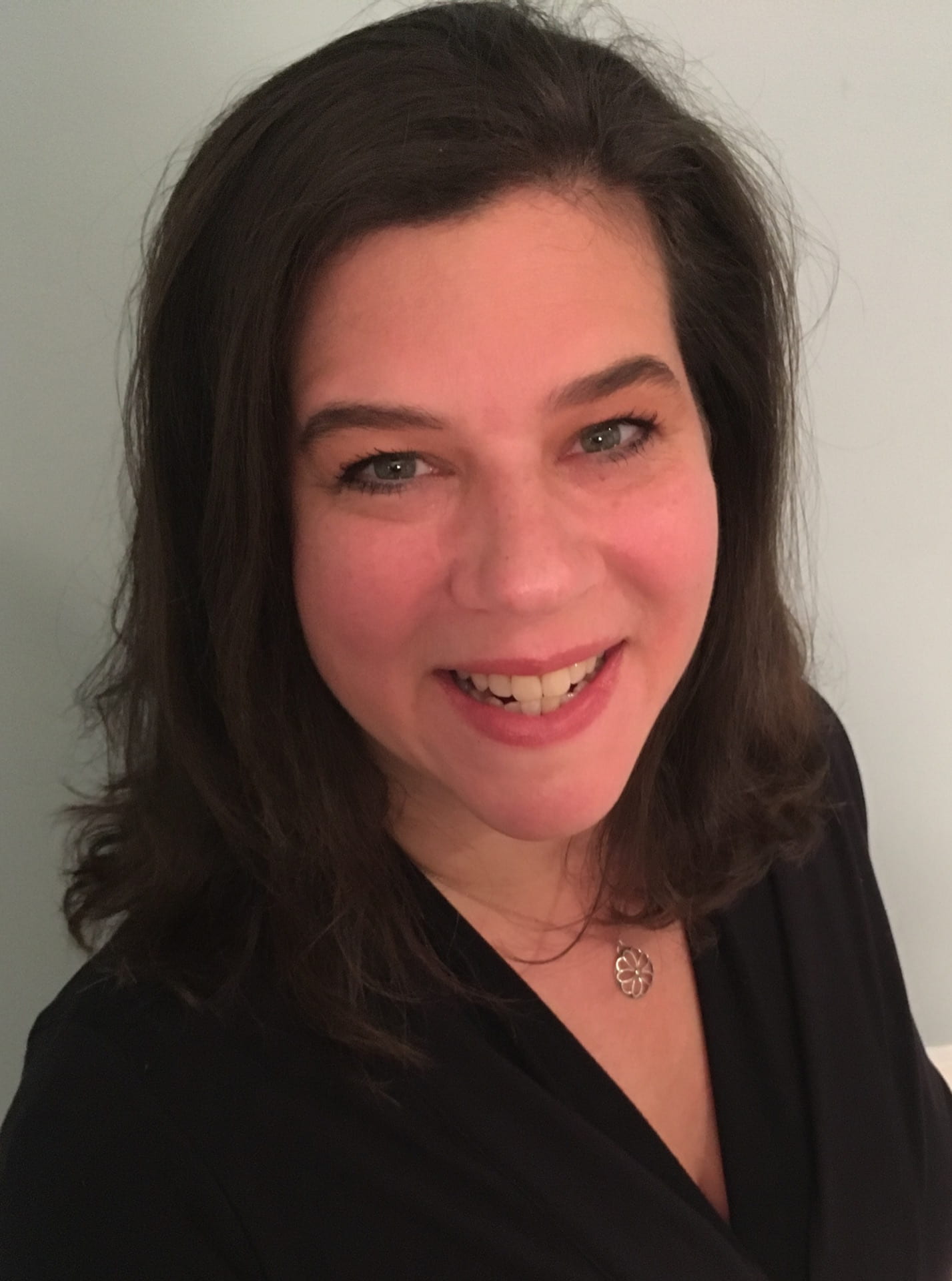 Amanda Van Garderen is an Early Literacy Teacher in the Surrey School District. She holds a Master’s degree in Imaginative Education from Simon Fraser University. Her research is primarily focussed on the role of oral language in literacy and the interplay between oral rehearsal, conversation, and emergent writing. Amanda finds joy in being able to guide newly emergent readers and writers as they navigate the power of literacy.
Amanda Van Garderen is an Early Literacy Teacher in the Surrey School District. She holds a Master’s degree in Imaginative Education from Simon Fraser University. Her research is primarily focussed on the role of oral language in literacy and the interplay between oral rehearsal, conversation, and emergent writing. Amanda finds joy in being able to guide newly emergent readers and writers as they navigate the power of literacy.
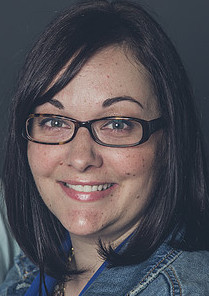 Courtney Robertson is a Vice-Principal in Langley, British Columbia. She completed her Graduate studies with a focus in Imaginative Education at Simon Fraser University. Courtney began her career as an Early Learning Specialist and has continued to find passion and enjoyment in teaching and working with young learners. Her primary research areas include dialogical thinking and multiculturalism, the power of a beautiful narrative, and the “wonder” of teaching and learning for all students. You can follow her on twitter @wonderanded.
Courtney Robertson is a Vice-Principal in Langley, British Columbia. She completed her Graduate studies with a focus in Imaginative Education at Simon Fraser University. Courtney began her career as an Early Learning Specialist and has continued to find passion and enjoyment in teaching and working with young learners. Her primary research areas include dialogical thinking and multiculturalism, the power of a beautiful narrative, and the “wonder” of teaching and learning for all students. You can follow her on twitter @wonderanded.

